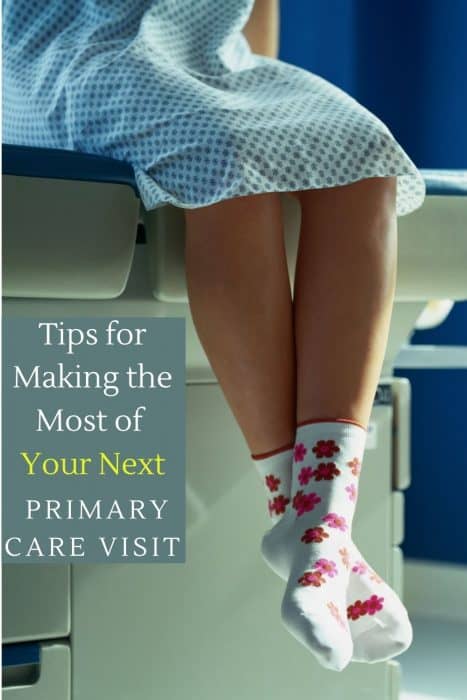
When was the last time that you visited a Primary Care Physician?
I’ll confess that I hadn’t gone for a general checkup in over a decade prior to my experiential research for this article.
I know… I know. My aversion to doctor’s visits has been part avoidance/lack of making it a priority.
Before my first return visit, I interviewed a few physicians to help reduce my fears and learn how to make the most out of my visit.
This article is written in partnership with St. Elizabeth Physicians

1. What do you wish patients would TELL you during a visit?
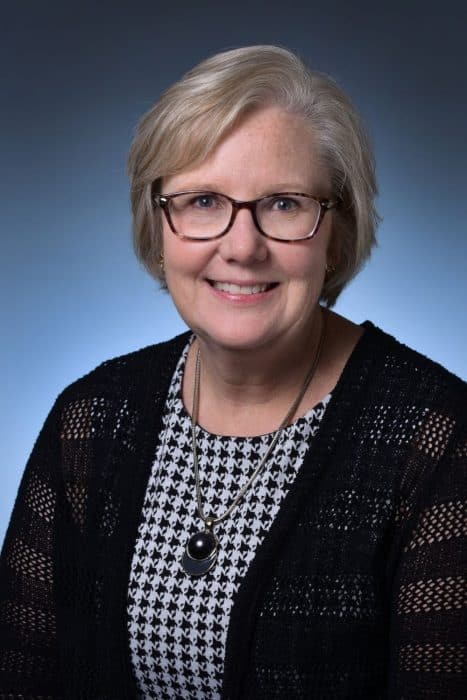
The most important thing to me is that the patient will tell me what they most want to accomplish during their time with me. That they feel comfortable sharing details in an honest way in order for us to work together to solve the problem.
Randi Callahan Tracy, MD Physician Wellness Navigator
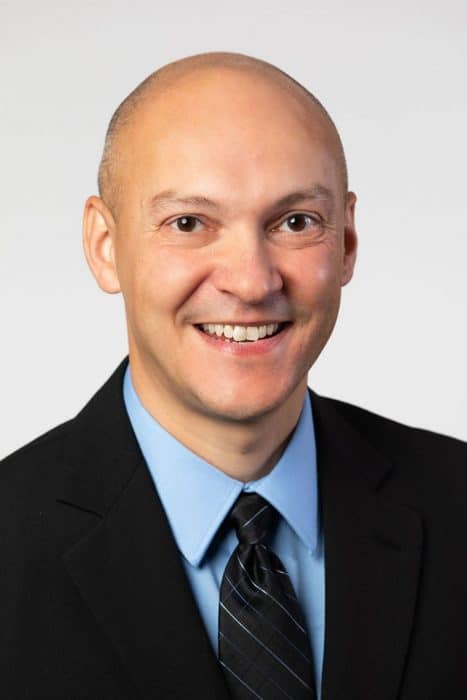
We really need patients to be honest with us. They need to tell us if they are having a problem.
Joshua Benge, MD
St. Elizabeth Physicians Concierge Complete
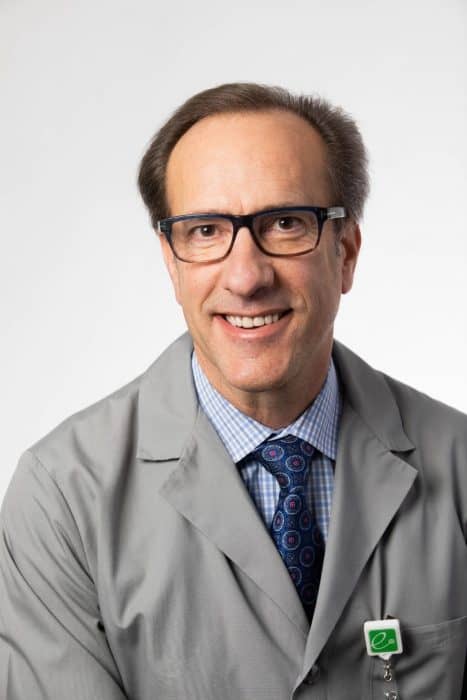
What some of their expectations are, set the agenda. I also like to hear about things that are going well in their life – with their job, their aspirations, their hobbies, travels, family, projects.
Michael Gieske, MD
Clinical Director-Operations & Medical Director, St. Elizabeth Virtual Health Center

2. What do you wish patients would ASK you during a visit?

The patient’s goals for the visit are very important, but I always appreciate questions related to what I would recommend from a preventive health standpoint based on their risk profile. It gives us the best chance to individualize screenings and truly save lives.
Randi Callahan Tracy, MD
Physician Wellness Navigator

If patients are struggling in a particular area (diet, exercise, depression, etc) please ask about it.
Joshua Benge, MD
St. Elizabeth Physicians Concierge Complete

Ask me what things are missing to help them stay healthy and happy. What “gaps” are missing in their care (colonoscopy, breast cancer, screening, etc.)?
Barry Wendt, MD
AVP-Clinical Transformation & Physician Director-Information Systems
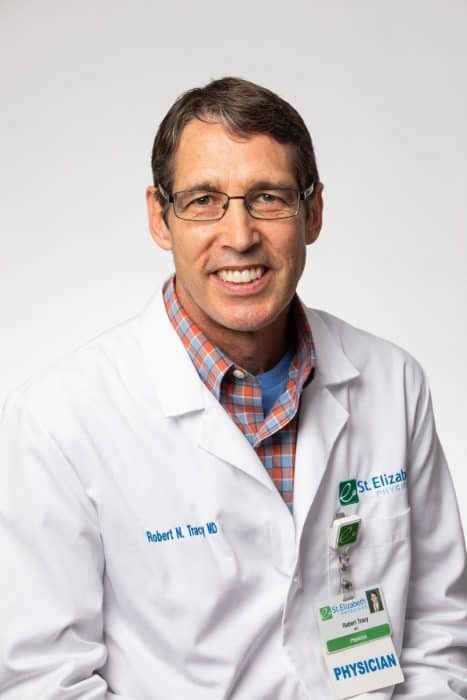
What can they do to improve their own health? I want the patient to feel empowered to take charge of their well being.
Robert Tracy, MD
Physician Director-Quality & Compliance

What immunizations or other health maintenance testing or screening they are due for. Sometimes it is helpful to see patients take an active role in their health instead of being told what they need or require.
Michael Gieske, MD
Clinical Director-Operations & Medical Director, St. Elizabeth Virtual Health Center

3. What advice would you give to someone who has anxiety about visiting the doctor? (Especially if they haven’t visited a doctor in YEARS)

This is so common and completely understandable. Often there is a fear that we might find something frightening, or that something serious is already going on. I would recommend that you try to reframe this visit into more of an opportunity to get “caught up” on all of the things you have been putting off so that you can actually worry less and start with a clean slate. This is not about judgment at all, we are usually very grateful when folks decide to take charge of their health.
Randi Callahan Tracy, MD
Physician Wellness Navigator

Express their concerns and share their feelings. We understand this can be scary. Get their concerns and worries out on the table earlier so we can move forward to address their medical issues.
Robert Tracy, MD
Physician Director-Quality & Compliance

Breathe easy; we’re easy to get along with. We will work with them to get them caught up or back on track.
Michael Gieske, MD
Clinical Director-Operations & Medical Director, St. Elizabeth Virtual Health Center

4. What advice/tips would you give to someone who has anxiety while they are waiting to see a doctor in the office?

I think the best way is to bring something to do that you know will relax you – some read, some knit, others play games or watch movies on their phones.
Randi Callahan Tracy, MD
Physician Wellness Navigator

We will do our best to not make you wait long but… just in case bring your phone, download a game or organize your photos or playlist, or just bring a book.
Barry Wendt, MD
AVP-Clinical Transformation & Physician Director-Information Systems

If you are anxious while waiting, bring a notepad and write down your concerns and issues you want to address. Try to prioritize what is most important to you. This task will keep you busy while waiting and distract you from worrying about your visit. If you get nervous when the provider comes in you will have your thoughts down and ready to go.
Robert Tracy, MD
Physician Director-Quality & Compliance
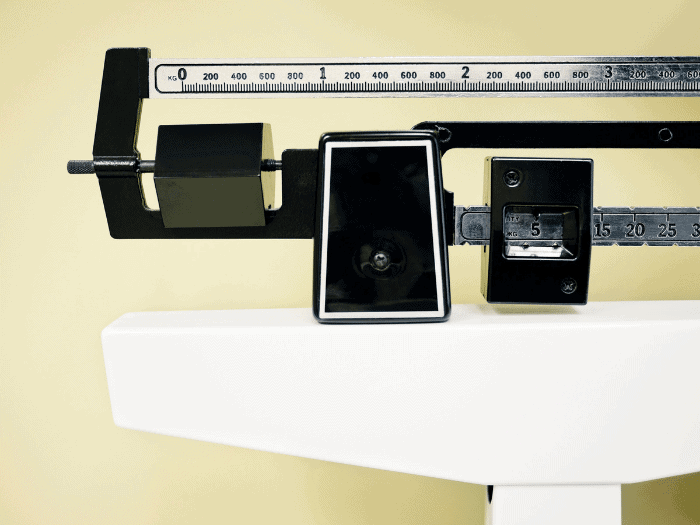
5. What are some of the routine/baseline/ basic things that a patient can expect during a visit with their primary care doctor? (Check weight, blood pressure, etc?)

Weight, temperature, blood pressure, height to start. Expect a series of questions about your health history, surgeries, medications, allergies, and family history as well as any health habits.
Randi Callahan Tracy, MD
Physician Wellness Navigator

It is important for us to check your vital signs (weight, blood pressure, and pulse). Most primary care visits will not need you to undress. The majority of the visit will be spent talking about your health concerns and getting to know you so we can keep you healthy.
Barry Wendt, MD
AVP-Clinical Transformation & Physician Director-Information Systems

Addressing their needs, chief complaints, or requests. Most visits should touch on health maintenance and care gaps. review of lab work and health maintenance screens, and determination of what they are due for. Development of a follow-up, and return plan, expectations.
Michael Gieske, MD
Clinical Director-Operations & Medical Director, St. Elizabeth Virtual Health Center

6. Any tips/techniques for reducing a patient’s fear of needles?

I usually recommend that you look the other way, and just keep making conversation to provide a distraction.
Randi Callahan Tracy, MD
Physician Wellness Navigator

Don’t watch when getting a shot or blood drawn. Take slow deep breaths and try to relax.
Joshua Benge, MD
St. Elizabeth Physicians Concierge Complete

Most injections are very small needles these days. Our staff is highly trained in ways to make these painless.
Barry Wendt, MD
AVP-Clinical Transformation & Physician Director-Information Systems
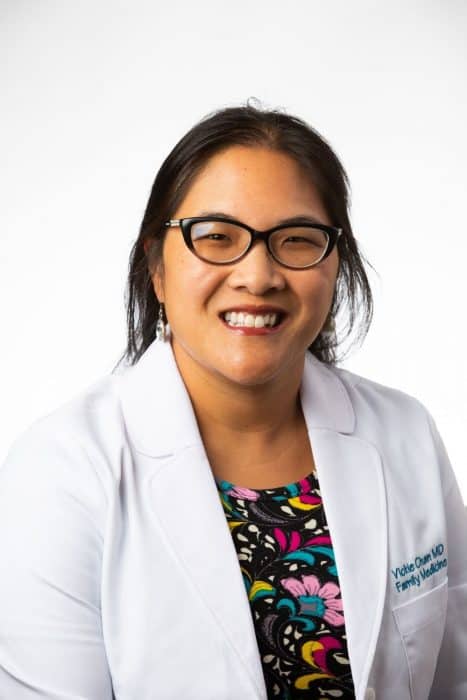
Breathing techniques, we can do distraction techniques.
Vickie Chan, MD
St. Elizabeth Physicians Highland Heights Primary Care

Let the nurses and doctor know you have a fear of needles. We can take measures to help relieve your anxiety. If you get lightheaded or tend to pass out, tell us in advance, we will lay you down to help relieve symptoms.
Robert Tracy, MD
Physician Director-Quality & Compliance

I wish I knew. Just need to emphasize that it beats the alternative; sometimes just saying that seems to resonate.
Michael Gieske, MD
Clinical Director-Operations & Medical Director, St. Elizabeth Virtual Health Center
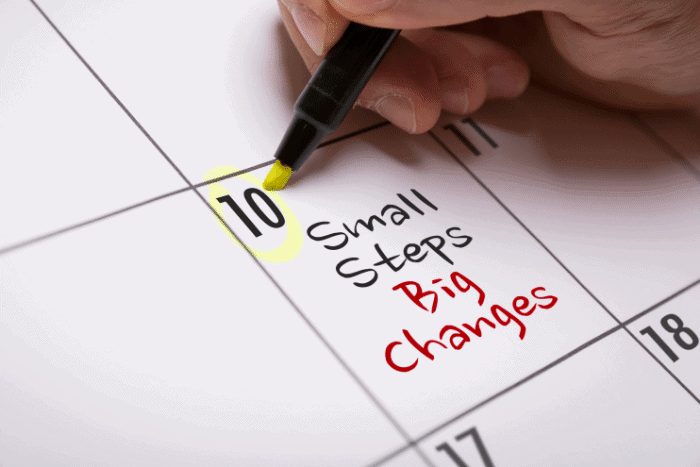
7. What tips/advice would you give to someone who doesn’t prioritize their health?

I try to relate it to any type of maintenance that we might do on our cars, houses, and anything else that we want to last a long time. If we do the small things all along, we will typically get longer and better performance. Our bodies are no different.
Randi Callahan Tracy, MD
Physician Wellness Navigator

Putting off taking care of yourself will eventually catch up with you. Making small, incremental changes can lead to feeling better now and in the future.
Joshua Benge, MD
St. Elizabeth Physicians Concierge Complete

If you don’t have time to prioritize your health then someday you will realize you really don’t have time to be sick.
Barry Wendt, MD
AVP-Clinical Transformation & Physician Director-Information Systems

I try to get to the root of why they don’t. there’s typically a barrier and if we can break through that then we are more successful (i.e. poor self-esteem, caregiver syndrome, etc)
Vickie Chan, MD
St. Elizabeth Physicians Highland Heights Primary Care

It is our job to educate patients on the “why” they need to prioritize their health, especially when it comes to preventive medicine. Many patients want to just wait until something is “broken”. I compare it to maintaining their car, they do preventive maintenance on their vehicle because they do want their car stranding them on the highway one day.
Robert Tracy, MD
Physician Director-Quality & Compliance

Emphasize how important it is to take care of problems when they are small or before they develop.
Michael Gieske, MD
Clinical Director-Operations & Medical Director, St. Elizabeth Virtual Health Center
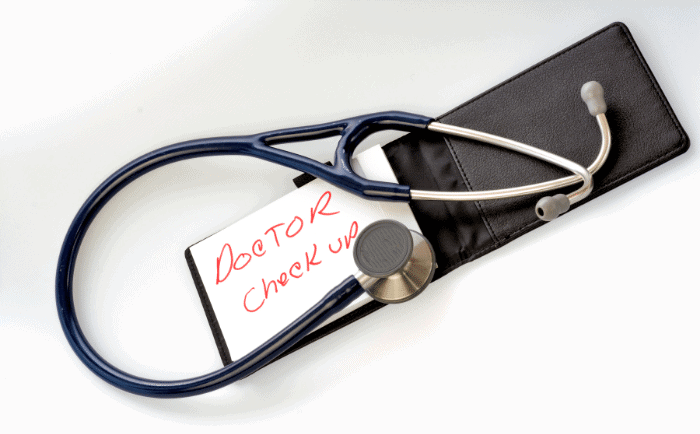
8. How often should you see your primary doctor? (What types of annual checkups/what ages? etc.)

This is a tough one, we like to see our pediatric patients yearly. After college, we may see them every 1 to 2 years depending on their health, and usually by 40 are doing yearly visits.
Randi Callahan Tracy, MD
Physician Wellness Navigator

For children over age 2, they should be seen yearly until age 18. Women 18 and over that are sexually active should be seen annually. Men 18 to 40 at least every 3-5 years. Men and women over 40 I recommend annual wellness exams to monitor their health status and update care gaps.
Robert Tracy, MD
Physician Director-Quality & Compliance

At least once a year for wellness exams once you hit 40 yo. For patients with multiple medical issues or problems or more than one medication, they should be seen at least every 6 months. If BP or Diabetes is uncontrolled, they should be seen at least every 3 months.
Michael Gieske, MD
Clinical Director-Operations & Medical Director, St. Elizabeth Virtual Health Center
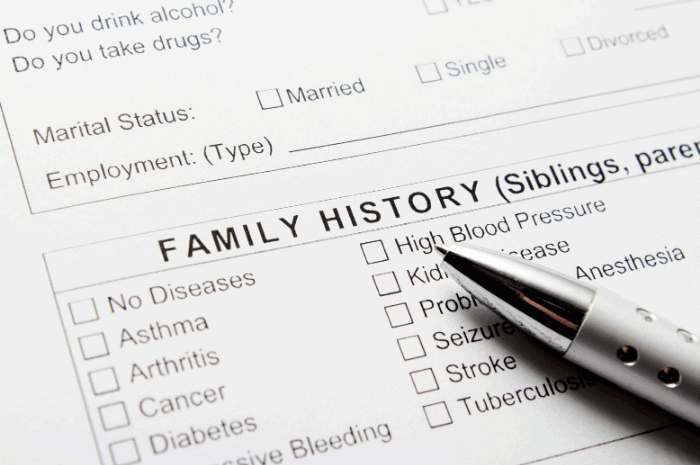
9. What are some proactive things that a patient can do to partner with their doctor for their health?

It is great when you can schedule a dedicated check-up to really focus on preventative issues. That conversation can really help to create a relationship in which we can share more information or connect you to referral sources like a dietician or social worker. Also, if you would have an illness or problem, we are already a familiar face and it will be much less stressful to come in.
Randi Callahan Tracy, MD
Physician Wellness Navigator

Be organized. Bring in a list of your medical problems and current medications. Ask your family members about their health conditions. Use our patient portal (MyChart) to enter your information. You and your provider will get much more out of the visit that way.
Barry Wendt, MD
AVP-Clinical Transformation & Physician Director-Information Systems

They should engage in a regular exercise routine. Adopt healthy eating habits. Maintaining year dental appointments for good oral health. Do wellness exams as indicated by their age. Most importantly keep up with vaccinations as indicated for their age and health conditions.
Robert Tracy, MD
Physician Director-Quality & Compliance
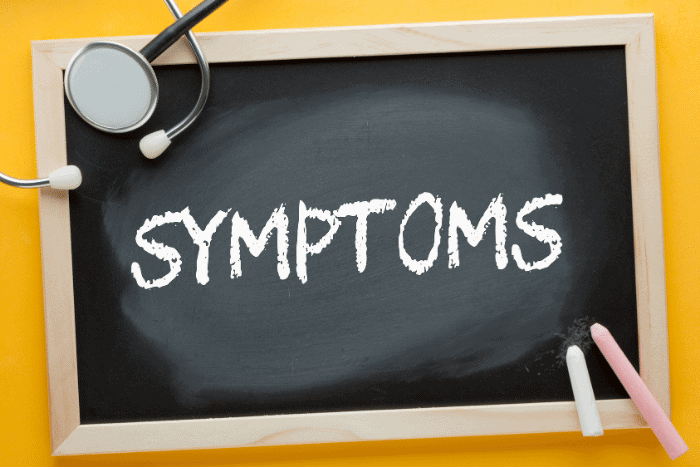
10. When should someone contact a doctor if they are concerned about symptoms or pain?

Certainly, anything that is severe or involves shortness of breath or chest pain. Symptoms that are new or unusual, or that go on despite trying some conservative things at home should always be checked. We would rather you be safe than worrying at home, so never feel that you are overreacting.
Randi Callahan Tracy, MD
Physician Wellness Navigator

If a new problem is severe, or if the problem doesn’t improve or gets worse.
Joshua Benge, MD
St. Elizabeth Physicians Concierge Complete

If you feel it is life-threatening (chest pain, shortness of breath, stroke symptoms, etc.) then go to the ER to get help immediately. If you have any other concerns you can send us a question on MyChart.
Barry Wendt, MD
AVP-Clinical Transformation & Physician Director-Information Systems

When it doesn’t go away when it’s causing anxiety or getting worse.
Vickie Chan, MD
St. Elizabeth Physicians Highland Heights Primary Care

When symptoms seem to persist beyond what is expected or if they seem to be escalating. Of course, when you are not sure about your symptoms, it is best to call or schedule to see us.
Robert Tracy, MD
Physician Director-Quality & Compliance

Certainly depends on the location, severity, and duration. Any pain that persists more than 2 weeks should be worthy of medical consultation.
Michael Gieske, MD
Clinical Director-Operations & Medical Director, St. Elizabeth Virtual Health Center

11. What’s the best approach to documenting their concerning symptoms?

It is helpful to be able to tell us when the pain started, what makes it better or worse, and if you have any other symptoms, even if you are not sure if they are related. We may ask you about your family history of certain issues, or any recent changes in diet or travel, so its good to have given a little thought to those things as well.
Randi Callahan Tracy, MD
Physician Wellness Navigator

Keep a journal. Send a my chart message.
Joshua Benge, MD
St. Elizabeth Physicians Concierge Complete

MyChart Advice Request
Barry Wendt, MD
AVP-Clinical Transformation & Physician Director-Information Systems

Writing down complaints on a piece of paper or making notes on your phone will help to remind you of all your symptoms. Also, phones are great to take pictures of rashes or lesions on the body, as things can change between the time you call to make an appointment and are seen
Robert Tracy, MD
Physician Director-Quality & Compliance

12. What is telehealth and who/when is it a good option for a patient?

Telehealth is the ability to have your visit on the laptop, tablet, or phone. These visits are especially good for routine checkups when you have been feeling fine and need your medication refilled. They are less helpful for symptoms that might require other tests in the office or lab work. They are really not appropriate for an injury or abdominal pain when an examination may be important. Sometimes your provider will start a video visit and decide to ask you to come into the office instead due to the nature of your problem.
Randi Callahan Tracy, MD
Physician Wellness Navigator

A great way to connect to us without coming into the office. It works like Facetime or Skype. If it does not need an in-person exam we can probably take care of it that way. They are great during COVID-19 because you stay safe at home and we reduce the need for protective equipment here.
Barry Wendt, MD
AVP-Clinical Transformation & Physician Director-Information Systems

It can be video visits or phone visits. for those who cannot make it in or reluctant for some reason.
Vickie Chan, MD
St. Elizabeth Physicians Highland Heights Primary Care

Telehealth is a new way to communicate and do a doctor’s visit. I find Telehealth is a great way to follow up on stable medical conditions. It is also good for acute illnesses that are not likely to require testing or extensive physical exam. Do not schedule Telehealth visits for complex or potentially more serious problems like chest pain, abdominal pain, or conditions with high fevers.
Robert Tracy, MD
Physician Director-Quality & Compliance

Virtual health is a tremendous option and opportunity for our patients. This avenue has taken on more importance and had more relevance than we would have ever imagined. As awful as this pandemic has been, nothing could have possibly done more to highlight to both patients and providers how easy, versatile, and relevant this option is. Many of the barriers, both perceived and real, have been confronted, addressed, and overcome.
Michael Gieske, MD
Clinical Director-Operations & Medical Director, St. Elizabeth Virtual Health Center

13. What does an ideal patient/doctor relationship look like to you?

We love connecting with our patients and their families, and often share a little about ourselves as well. A good relationship should be built on trust: patients know that we will respond when they have an important issue, and we know the patient will do their best to carry out the prescribed therapy and to keep us informed if our treatment is not helping, or things are getting worse. Communication is so important in all relationships, and this is no different.
Randi Callahan Tracy, MD
Physician Wellness Navigator

It is a partnership built on trust and communication. It is built over time. It requires both parties to put effort into making it work.
Joshua Benge, MD
St. Elizabeth Physicians Concierge Complete

It is building a good relationship (like having a good friend with a lot of medical knowledge and who can prescribe medicine).
Barry Wendt, MD
AVP-Clinical Transformation & Physician Director-Information Systems

An even balance of risk/benefit discussions. patients realizing their own responsibility to their health. open communication
Vickie Chan, MD
St. Elizabeth Physicians Highland Heights Primary Care

This is a relationship that you feel comfortable sharing your more vulnerable concerns. You want to feel you have been listened to by your provider. The patient needs to be engaged and willing to participate in their care by following up on recommendations made by their health care team.
Robert Tracy, MD
Physician Director-Quality & Compliance

A carefully conveyed interest in the health and well-being of the patient. A mutual interest in the lives and lifestyles of one another. A feeling that the patient feels they are being listened to, and that their concerns are truly being addressed and taken to heart.
Michael Gieske, MD
Clinical Director-Operations & Medical Director, St. Elizabeth Virtual Health Center
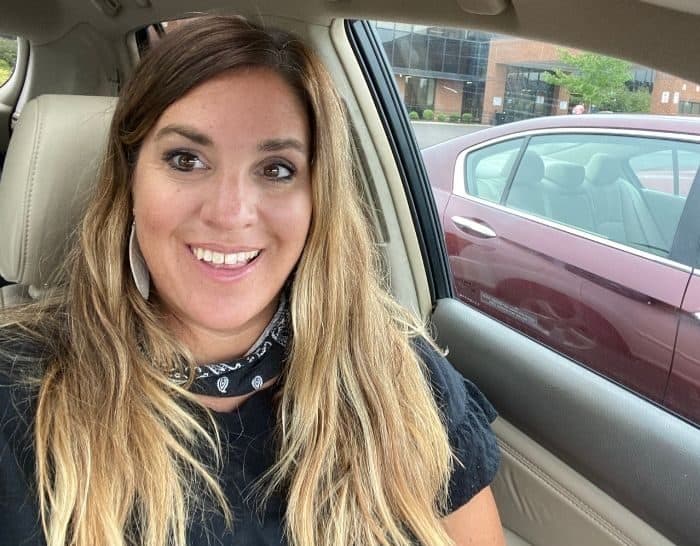
Did I Go to the Doctor?
Yes, I thought that it would be a bit hypocritical to talk about the importance of an effective doctor’s visit… while still avoiding going to one.
I will confess that my visit was due to a last-minute cancellation that didn’t give me enough time to procrastinate rescheduling or coming up with more lame excuses not to go… so I went.
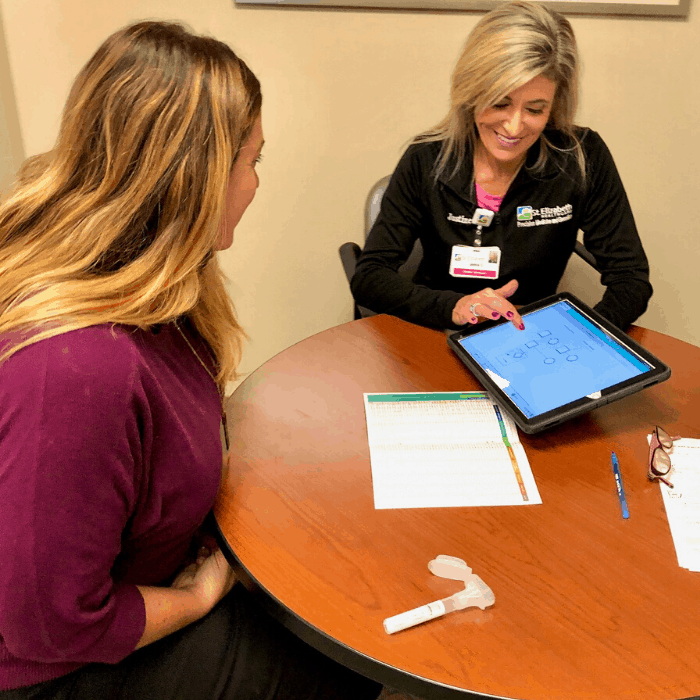
My Previous Medical Screenings
Armed with the knowledge from my previous doctor interviews, I put as much of my personal medical history and my family’s medical history as I could in the note section of my phone.
I also signed up for MyChart and downloaded the MyChart app onto my phone so that I could have all of my medical information easily accessible in one location.
Unfortunately, my medical family tree has a big history with cancer that includes my mom who died from breast cancer. She was the primary caretaker for my special needs brother and detected her cancer late due to her avoidance of doctors after spending so many years in doctors’ offices and hospital stays with my brother.
You would think that I would be more proactive as a result of my concerning family history but instead, I’ve found it easier to avoid and try to ignore out of fear of the unknown.
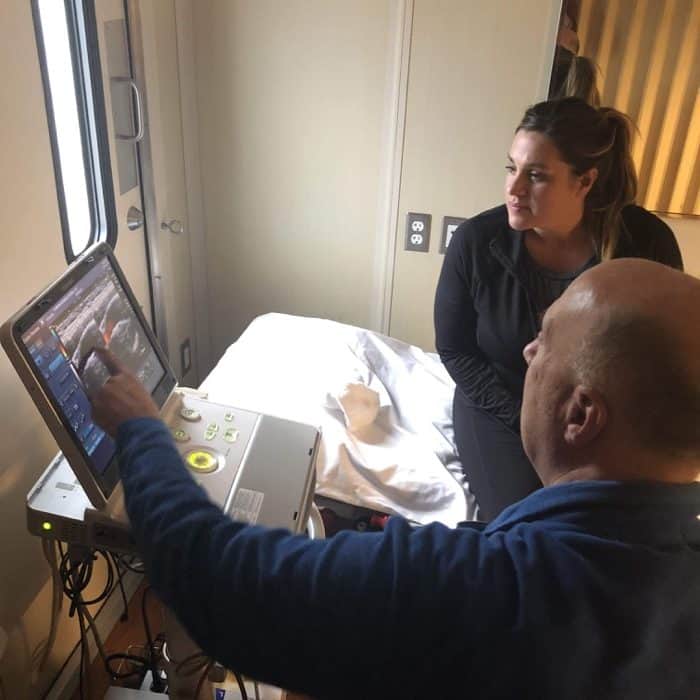
I did have a few previous tests and exams to share with my doctor thanks to my previous medical adventures with St. Elizabeth Healthcare including a Cardio Van Screening, Genetic Screening, and a Mammogram during a Power Lunch.
The older I get, the more I realize how important it is for a physician to be a consistent and long term part of my health and wellness.
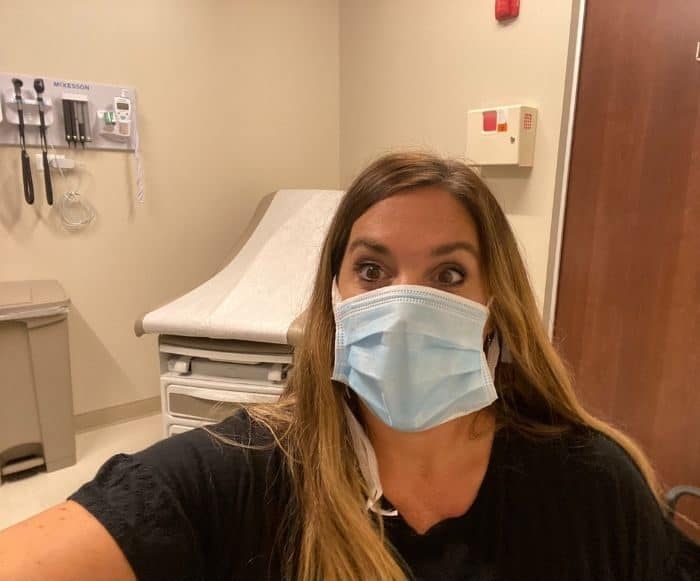
How Did My Visit to the Doctor Go?
I’ve been relatively healthy and fortunate to not HAVE to go to the doctor because of symptoms or pains over the years.
I had an afternoon appointment and escaped the needle because I needed to fast for 8-10 hours prior to visiting the lab for my bloodwork.
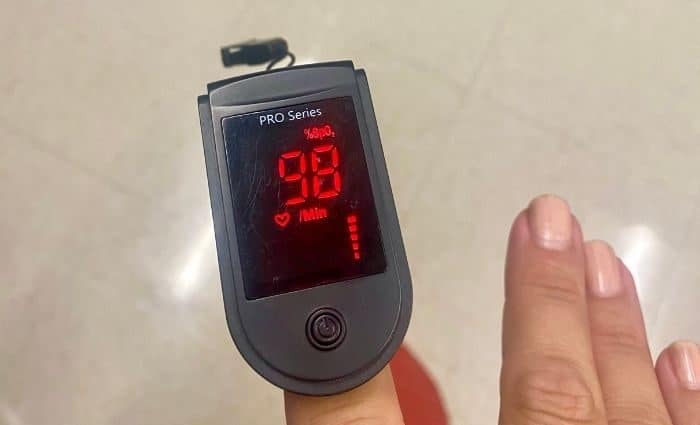
My pulse, blood pressure, etc. was checked which was pain-free.
I also decided to fess up and share a few areas of concern including my weight gain over the years and a few irregular moles because I love spending time in the sun.
My doctor did put in an order for me to get my bloodwork done along with a referral for a dermatologist.
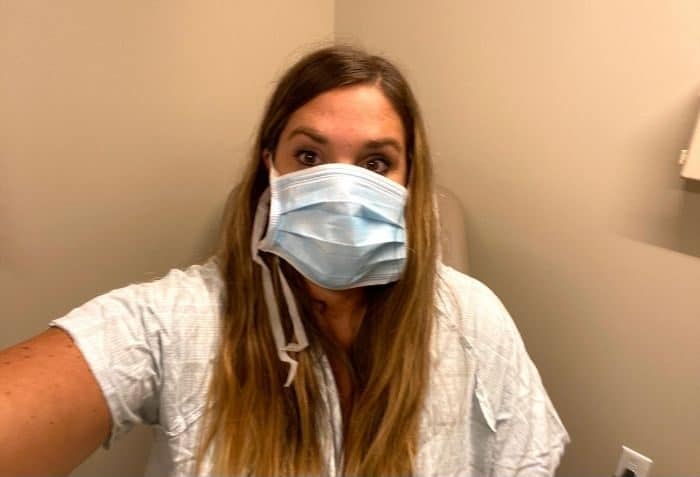
Get As Much Done While You’re Already There
During my visit, I was given the option to schedule a pap smear with a gynecologist or my doctor could do the exam during my visit.
I decided to get it over with because it was more likely that I would try to procrastinate that specific exam even longer. Half the battle is showing up …and I was already in the office.
I received a call that my results were normal after my visit and now I don’t need another pap smear exam for 3 years. YAY!
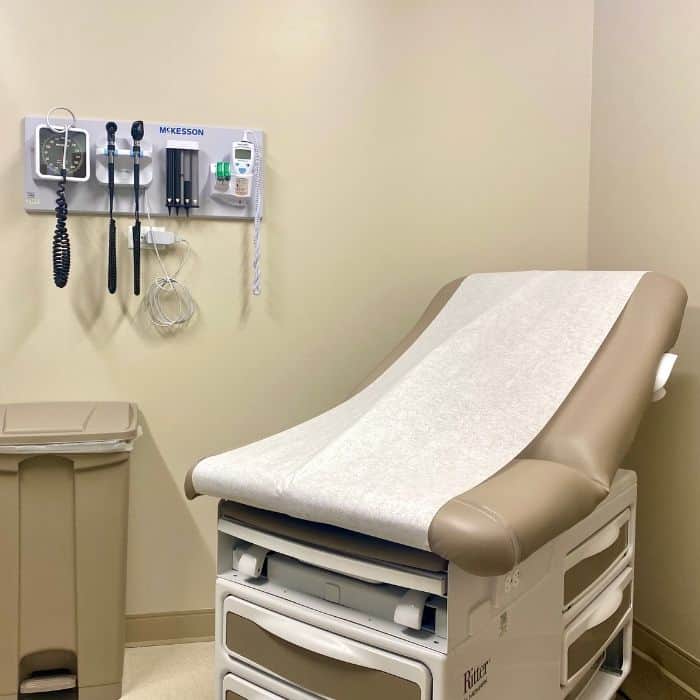
Are You Ready to Schedule A Check-Up or Find a Primary Care Doctor?
If I can be brave, so can you! Please don’t wait as long as I did to get a check-up.
You can find a doctor and primary care office located near you on the St. Elizabeth Healthcare website.

